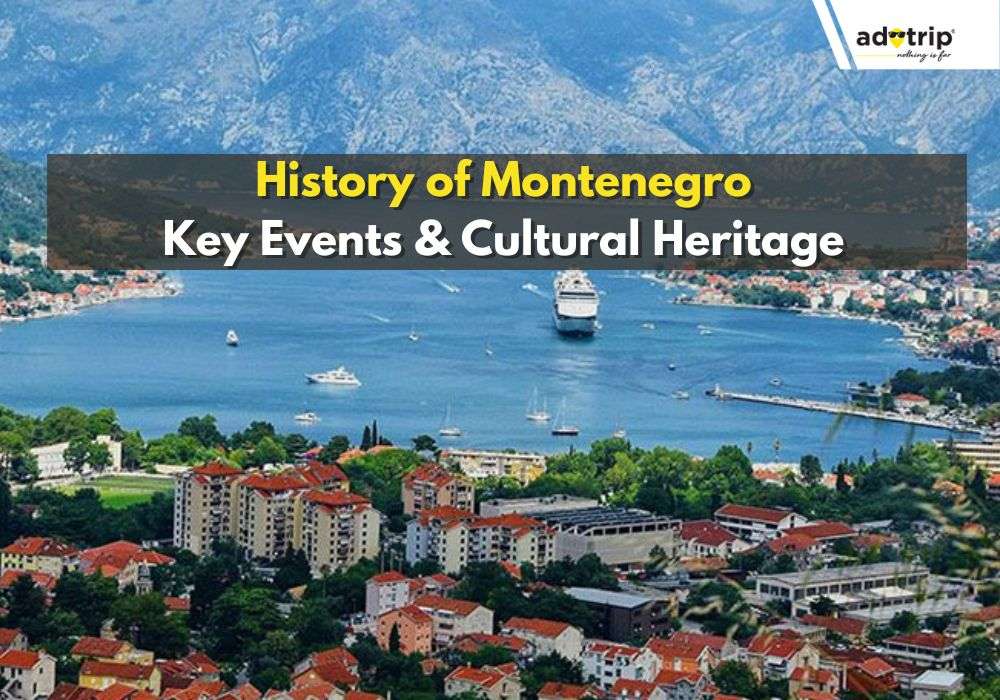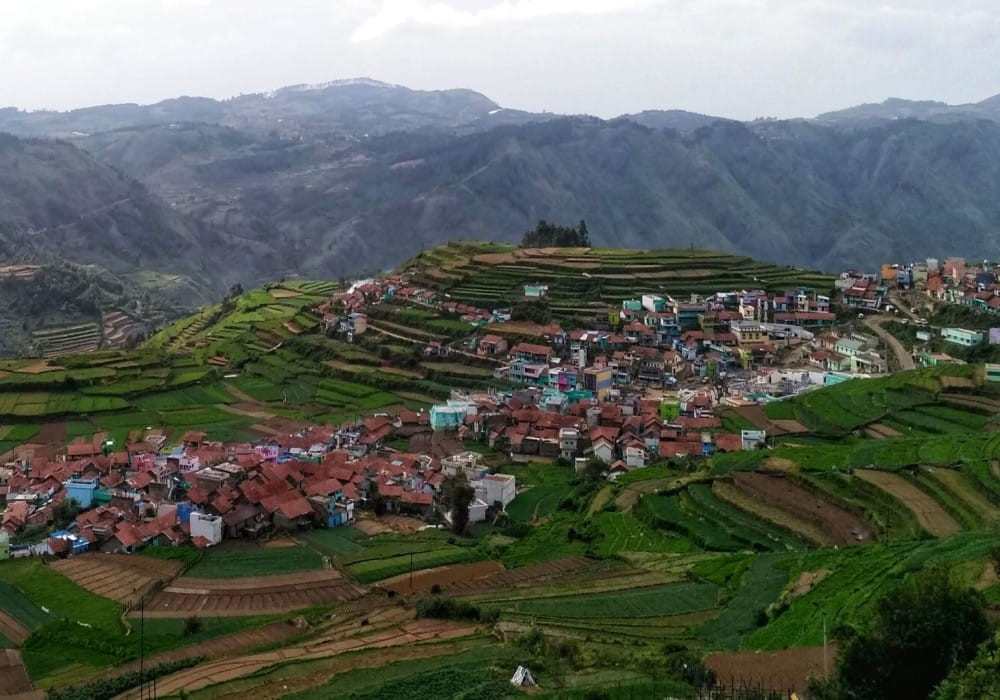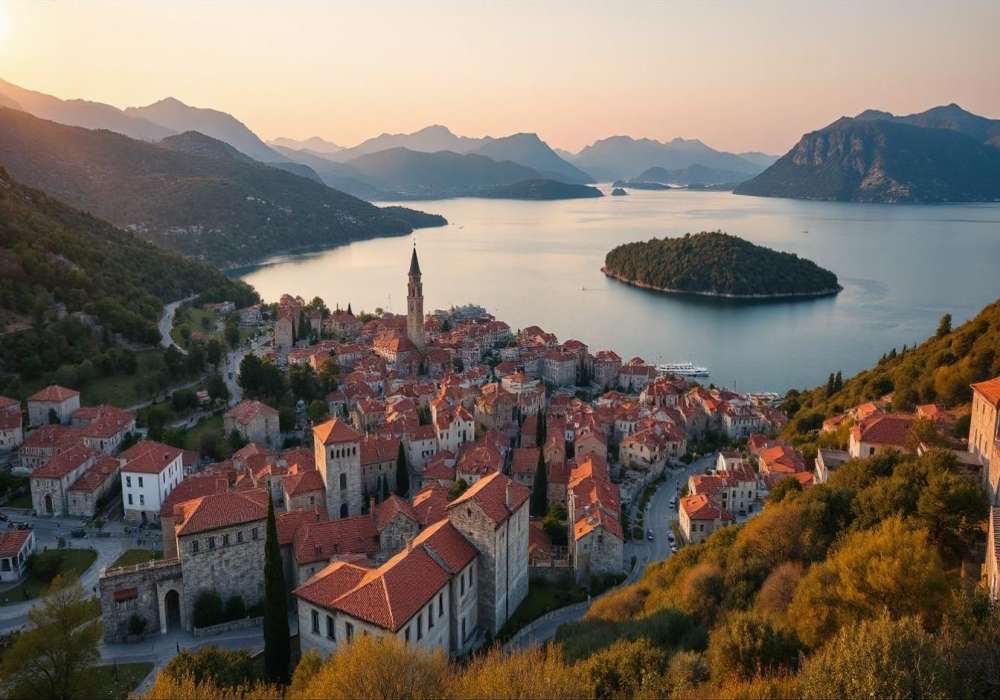
Last Updated At: 04-Jul-2025
History of Montenegro – Key Events & Cultural Heritage
Montenegro, renowned for its spectacular mountains and the UNESCO-listed Bay of Kotor, unfolds a rich tapestry of history. The Budva Riviera's elegant beach resorts and glacial lakes add to its allure. In the heart of Europe, Montenegro offers an affordable yet vibrant travel destination. From mediaeval tales to modern resilience, Montenegro's history is captivating. Boasting one of Europe's best nightlife scenes, it's a gem waiting to be explored. The optimal time to visit is May to October, revealing historical treasures and breathtaking landscapes. Tivat and Podgorica airports beckon you to delve into Montenegro's fascinating past. Stay with us for more mind-blowing information!
List of 10 historical sites of Montenegro - A Glimpse into Old Books
The blend of affordability and scenic beauty makes Montenegro a unique travel gem. Embark on a journey through the ages, exploring Montenegro's past and present, and witness the convergence of history, culture, and natural wonders.
- Montenegro's Origins | Ancient Beginnings
- Medieval Montenegro | Fortresses and Rulers
- Ottoman Rule | Resilience and Struggles
- Renaissance Influence | Cultural Flourish
- Montenegrin Dynasties | Petrović-Njegoš Legacy
- Balkan Wars Impact | Shaping a Nation
- World War II in Montenegro | Trials and Triumphs
- Road to Independence | Modern Era
- Contemporary Montenegro | A Glimpse Today
- Montenegro's Airports | Tivat and Podgorica
1. Montenegro's Origins - Ancient Beginnings
Ancient Montenegro's history is a captivating journey through time, marked by the rich tapestry of its cultural heritage and historical events. The roots of Montenegro can be traced back to ancient times when Illyrian tribes inhabited the region. The Montenegro timeline unfolds with these early settlements, showcasing the resilience and resourcefulness of its people. Remarkable historical sites, such as the remnants of ancient fortresses and archaeological treasures, stand as witnesses to the vibrant past of this land.
2. Medieval Montenegro - Fortresses and Rulers
Transitioning into the mediaeval era, Montenegro's historical sites become a testament to the enduring spirit of its people. Magnificent fortresses perched on rugged landscapes tell tales of Montenegro's mediaeval history and the dynasties that ruled. Both conflict and cultural flourishing marked the Montenegrin timeline during this period, as rulers sought to establish their dominance while fostering the cultural identity that defines Montenegro to this day.
3. Ottoman Rule - Resilience and Struggles
The Ottoman Empire cast its shadow over Montenegro during a significant chapter in its history. This period, marked by Ottoman rule, tested the resilience of the Montenegrin people. The struggle for independence and the preservation of cultural heritage intensified, creating a unique blend of resistance and adaptation. Montenegro's historical events during this time are a testament to the enduring spirit that helped shape the nation's identity against the backdrop of the Montenegro Ottoman Empire.
4. Renaissance Influence - Cultural Flourish
Amidst the challenges, the Renaissance brought a wave of cultural influence to Montenegro. This period witnessed a flourishing of the arts, literature, and architecture, leaving an indelible mark on Montenegro's cultural heritage. The Montenegro timeline reflects a renaissance of creativity and intellectual pursuits, showcasing the people's resilience in preserving their unique identity amid external influences.
5. Montenegrin Dynasties - Petrović-Njegoš Legacy
The rise of Montenegro's dynasties, particularly the Petrović-Njegoš, is a pivotal chapter in its history. These dynasties contributed significantly to shaping the Montenegro we know today through strategic alliances and cultural patronage. Historical events unfold, showcasing the legacy of leadership and the impact of the Petrović-Njegoš dynasty on the nation's development.
6. Balkan Wars Impact - Shaping a Nation
The Balkan Wars played a crucial role in shaping the destiny of Montenegro. Historical events in Montenegro during this period highlight the trials and triumphs as Montenegro navigated through complex geopolitical landscapes. The Montenegro timeline reflects a nation asserting its independence, facing challenges head-on, and emerging with a strengthened sense of identity amidst the turbulence of the early 20th century.
7. World War II in Montenegro - Trials and Triumphs
World War II brought unprecedented challenges to Montenegro, testing its resilience and unity. The historical events during this tumultuous time reveal stories of sacrifice and resistance against occupying forces. Montenegro's timeline bears witness to the trials faced by its people and the triumphs achieved through unwavering determination to safeguard their homeland.
8. Road to Independence - Modern Era
The road to independence for Montenegro is a remarkable chapter in its modern era. The quest for sovereignty and self-determination led to significant historical events that culminated in the recognition of Montenegro as an independent nation. This period marked a decisive step forward in the nation's journey, solidifying its place in the global community.
9. Contemporary Montenegro - A Glimpse Today
Today, Montenegro stands as a vibrant and independent nation, reflecting the collective resilience of its people. The contemporary landscape blends modernity and the echoes of a rich history. Historical sites and cultural practices offer a glimpse into Montenegro's diverse and dynamic identity in the 21st century.
10. Montenegro's Airports - Tivat and Podgorica
The modern connectivity of Montenegro is epitomised by its airports, notably Tivat and Podgorica. Serving as gateways to this historical land, these airports represent the intersection of the nation's past and present. As travellers arrive and depart, they become part of Montenegro's ongoing narrative, connecting with the historical sites and cultural heritage of Montenegro, making this nation a unique and captivating destination.
Montenegro's history is a captivating journey marked by resilience and cultural richness. It weaves a diverse narrative from ancient origins and mediaeval fortresses to Ottoman struggles and Renaissance influence. Dynastic legacies, wartime trials, and a modern pursuit of independence contribute to its unique identity. Today, Montenegro is a vibrant, independent nation, embodying the enduring spirit that shapes its character and destiny.
Plan your visit with Adotrip today. Obtain a wealth of information and end-to-end travel assistance and book flights, hotels and tour Packages under one roof.
With us, Nothing is far!
Frequently Asked Questions About the History of Montenegro
Q1. What is the early history of Montenegro?
A1. Montenegro's early history traces back to when Illyrian tribes inhabited the region. This era laid the foundation for the nation's identity and was marked by resilient communities and cultural heritage.
Q2. When did Montenegro gain independence as a modern nation?
A2. Montenegro gained independence as a modern nation on June 3, 2006, following a referendum that confirmed its separation from the State Union of Serbia and Montenegro.
Q3. What role did Montenegro play in the Balkan Wars and World War I?
A3. Montenegro played a significant role in the Balkan Wars, fighting for independence and territorial integrity. In World War I, it joined the Allies, facing occupation and hardships.
Q4. How did Montenegro become part of Yugoslavia, and when did it gain independence again?
A4. After World War I, Montenegro became part of the Kingdom of Serbs, Croats, and Slovenes (later Yugoslavia). In 2006, Montenegro held a referendum, gaining independence from the State Union of Serbia and Montenegro, becoming a sovereign nation again on June 3, 2006.
Q5. Can you provide information about Montenegro's recent history, including its path to European integration?
A5. Montenegro has been on a path to European integration. It has made progress in accession negotiations with the European Union (EU) in recent years. The country has implemented reforms to meet EU standards and criteria. However, specific details about the latest developments in Montenegro's journey toward European integration may have evolved, and it is advisable to consult more recent sources for the latest information.
--- Published By Adotrip
Latest Blogs

One Day Picnic Spot Near Vadodara - Nature, Heritage & Adven...

One Day Picnic Spot Near Panvel - Relax, Explore & Refresh

One Day Picnic Spot Near Nashik – Lakes, Hills & Heritage

One Day Picnic Spot Near Karjat – Nature, Adventure & Weeken...










 Dubai
Dubai Malaysia
Malaysia USA
USA





